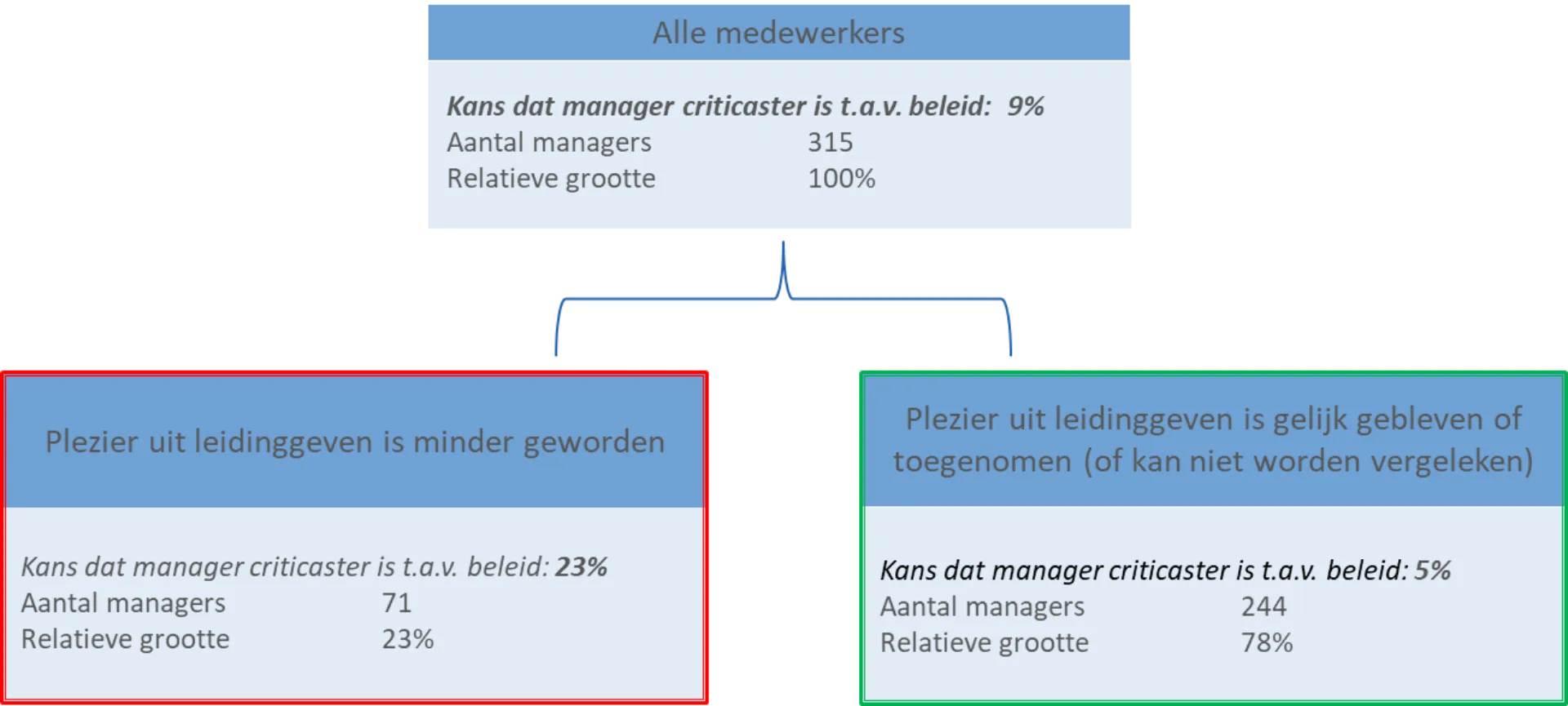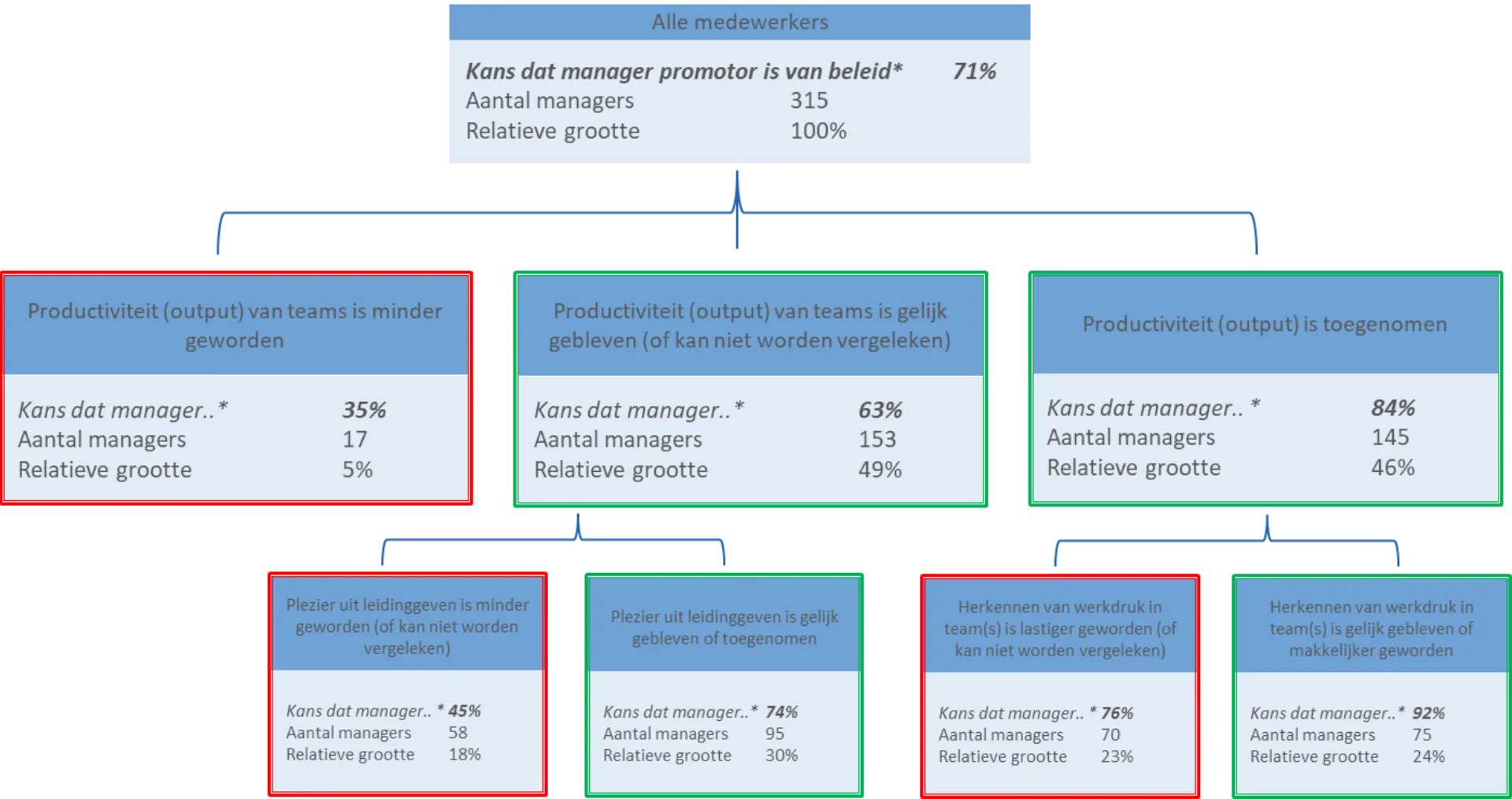The impact of hybrid working on the attitude of managers towards the company policy
In the wake of the COVID-19 pandemic, many organizations worldwide have had to adapt their ways of working, and hybrid working has become a popular concept. This new way of working has also been introduced at a Dutch insurance company. This raises the question of how hybrid working influences managers' attitudes toward company policy. AnalitiQs has conducted a thorough driver analysis on data from research into employee engagement and hybrid working to find answers to this question. The results of this research have provided interesting insights.

Impact of hybrid working on enjoyment in leadership and critical attitude
The research shows that managers who experience less pleasure in management as a result of hybrid working are more likely (23%) to be critics of the hybrid working policy of the company in question. This result suggests that managers' well-being and satisfaction with their leadership role play an important role in their attitudes toward company policies. It is crucial for organizations to understand how they can increase managers' enjoyment and satisfaction in their leadership role, especially in the hybrid work environment in which they operate.

Productivity and the role of managers as policy promoters
Another striking finding from the research is that managers who experience an increase or unchanged team productivity are much more likely (84% and 63% respectively) to be promoters of the hybrid working policy. This result indicates that team productivity plays a crucial role in shaping managers' attitudes toward corporate policies. If hybrid working leads to a noticeable improvement in team productivity, then managers are more likely to support and promote the policy.
The importance of fun and productivity for hybrid working promoters
Interestingly, managers who experience no change in team productivity are more likely to be promoters of hybrid working policies, but only if they enjoy their role as a manager as much or more (74%). This result highlights that managers' enjoyment and satisfaction are a key factor in shaping positive attitudes toward hybrid working, even if no significant change in team productivity is observed.

Conclusion: Improving hybrid work experience
The research findings show that managers' attitudes towards company policies are strongly influenced by the effects of hybrid working. It is clear that organizations need to be aware of the impact of hybrid working on the enjoyment and satisfaction of their managers, as well as on the productivity of their teams.